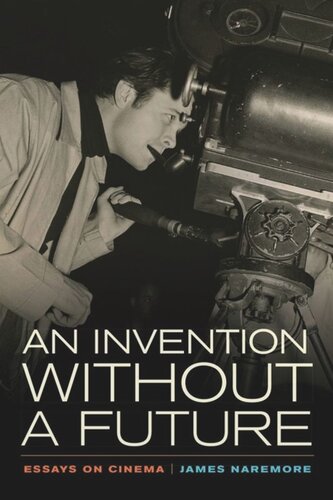

Most ebook files are in PDF format, so you can easily read them using various software such as Foxit Reader or directly on the Google Chrome browser.
Some ebook files are released by publishers in other formats such as .awz, .mobi, .epub, .fb2, etc. You may need to install specific software to read these formats on mobile/PC, such as Calibre.
Please read the tutorial at this link: https://ebookbell.com/faq
We offer FREE conversion to the popular formats you request; however, this may take some time. Therefore, right after payment, please email us, and we will try to provide the service as quickly as possible.
For some exceptional file formats or broken links (if any), please refrain from opening any disputes. Instead, email us first, and we will try to assist within a maximum of 6 hours.
EbookBell Team

4.4
92 reviewsIn 1895, Louis Lumière supposedly said that cinema is "an invention without a future." James Naremore uses this legendary remark as a starting point for a meditation on the so-called death of cinema in the digital age, and as a way of introducing a wide-ranging series of his essays on movies past and present. These essays include discussions of authorship, adaptation, and acting; commentaries on Howard Hawks, Alfred Hitchcock, Orson Welles, Vincente Minnelli, John Huston, and Stanley Kubrick; and reviews of more recent work by non-Hollywood directors Pedro Costa, Abbas Kiarostami, Raúl Ruiz, and Apichatpong Weerasethakul. Important themes recur: the relations between modernity, modernism, and postmodernism; the changing mediascape and death of older technologies; and the need for robust critical writing in an era when print journalism is waning and the humanities are devalued. The book concludes with essays on four major American film critics: James Agee, Manny Farber, Andrew Sarris, and Jonathan Rosenbaum.